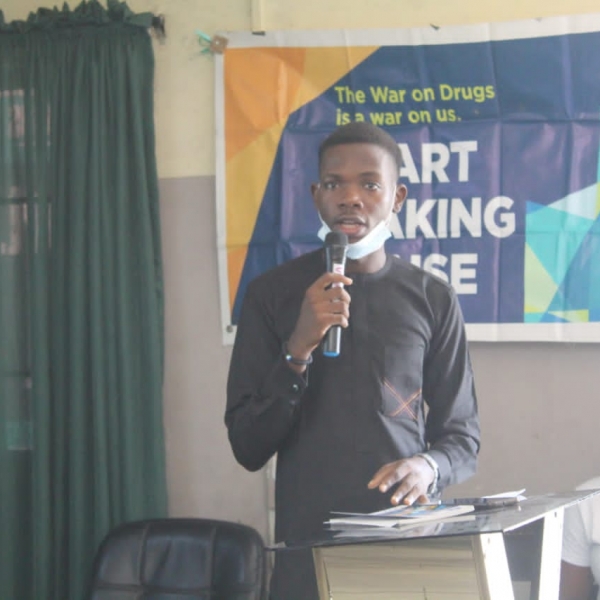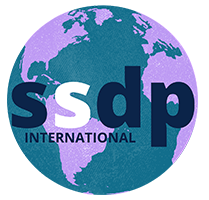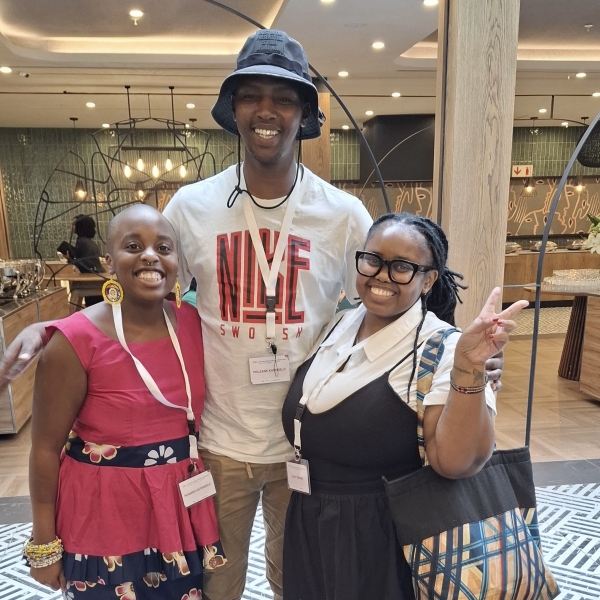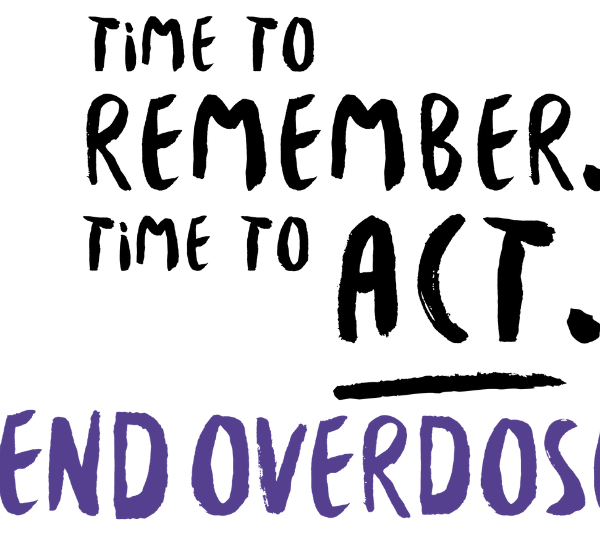Support. Don’t Punish Activities! Part 3: University of Calabar

SSDP University of Calabar, Nigeria
Adapted from the programme report by the University of Calabar leadership.
Programme Objective: To engage the community of people who use drugs of Bayside, and to find solutions to providing sustainable alternatives to the war on drugs.
The event consisted of two major sections: 1. Awareness Session and 2. Panel Discussion. The Awareness Session started by 12.45pm as Miss Hope Jonah ushered the various speakers.
The first presentation was made by pastor Mrs Victoria Emah-Emah. She delivered a presentation on “The Essence of Harm Reduction Services in Community Settings”.
Some key points from the presentation:
- Mrs Victoria shared her track record working with community members especially those within the confines of bayside community Calabar, on quite a number of very important projects and also on issues such as touching drug use.
- We may not be able to stop drug use easily but we can reduce the harm associated with drug use.
The second presentation was made by Dr Emmanuel Essien, represented by Dr Emmanuel Uwah, on the topic “Towards Community Based Harm Reduction Services: The Role of the Health Sector.”
Some key points from the presentation:
- He gave a succinct summary of the history of substance use in Nigeria touching on the: pre-colonial era, after World War II, and the different age groups that use drugs.
- He highlighted common drugs used within this context: Indian hemp, cocaine, and tramadol, among others.
- The previous approach toward addressing substance use include arrest, prosecution, jail, etc. And these approaches have not proven significant impact, but rather made it more difficult to salvage the issues relating to substance use.
- People who use drugs are not bad people, they should be seen as people who may be facing a health challenge.
- If we reduce stigma it will also help access to care.
- Whether we like it or not, people will still use drugs. And the most effective strategy towards achieving the solution is not arresting them.
- He encouraged that the government and health care officers should create an opportunity for people who use drugs to access care through making the process less ambiguous.
The third presentation was made by Mr Ogunkola Isaac Olushola on the topic “Youth Engagement for Safeguarding Community-Based Harm Reduction Services”.
Some key points from the presentation:
- We can narrate harm reduction like the seat belt in our cars. The seat belt helps prevent accidents. Same as the helmets.
- Harm Reduction is suggesting that substances should be made available in hospitals so it can be properly tested and regulated.
- One of the goals of harm reduction is to keep people alive and encourage positive change in their lives.
- The principle of harm reduction is to respect the rights of people who use drugs
- The youths can also contribute through:
- Getting the right information
- Using the power of technology and social media
- Initiate group awareness and campaigns
The Panel Session began at 1.30 pm following the three speakers and brief icebreakers. The panelists were: Mr Imo Uchenna, Pastor Mrs Victoria Emah-Emah, and Mr Ogunkola Isaac Olushola. Pastor Mrs Victoria Emah-Emah kindly interpreted the ideas presented by the panellists in the Efik language of the community while also making valuable additions.
Some quotes from the panel discussions:
“People like following the kind of care that works for them. Community based approach is more efficient and effective as it is more people-centered.”
Imo Uchenna
“Community ownership is a big problem. You should create a sense of ownership for the community members by consulting stakeholders in the community as regards information about the people within a particular social context, where to situate the intervention and when to have sessions.”
Imo Uchenna
“One of the key ways is to mobilize stakeholders to ensure effectiveness of interventions.”
Pastor Mrs Victoria Emah-Emah
“The war on drugs has been going on for about 52 years but people are still using drugs indiscriminately, so it is impossible to take out drugs from our society.”
Ogunkola Isaac Olushola




